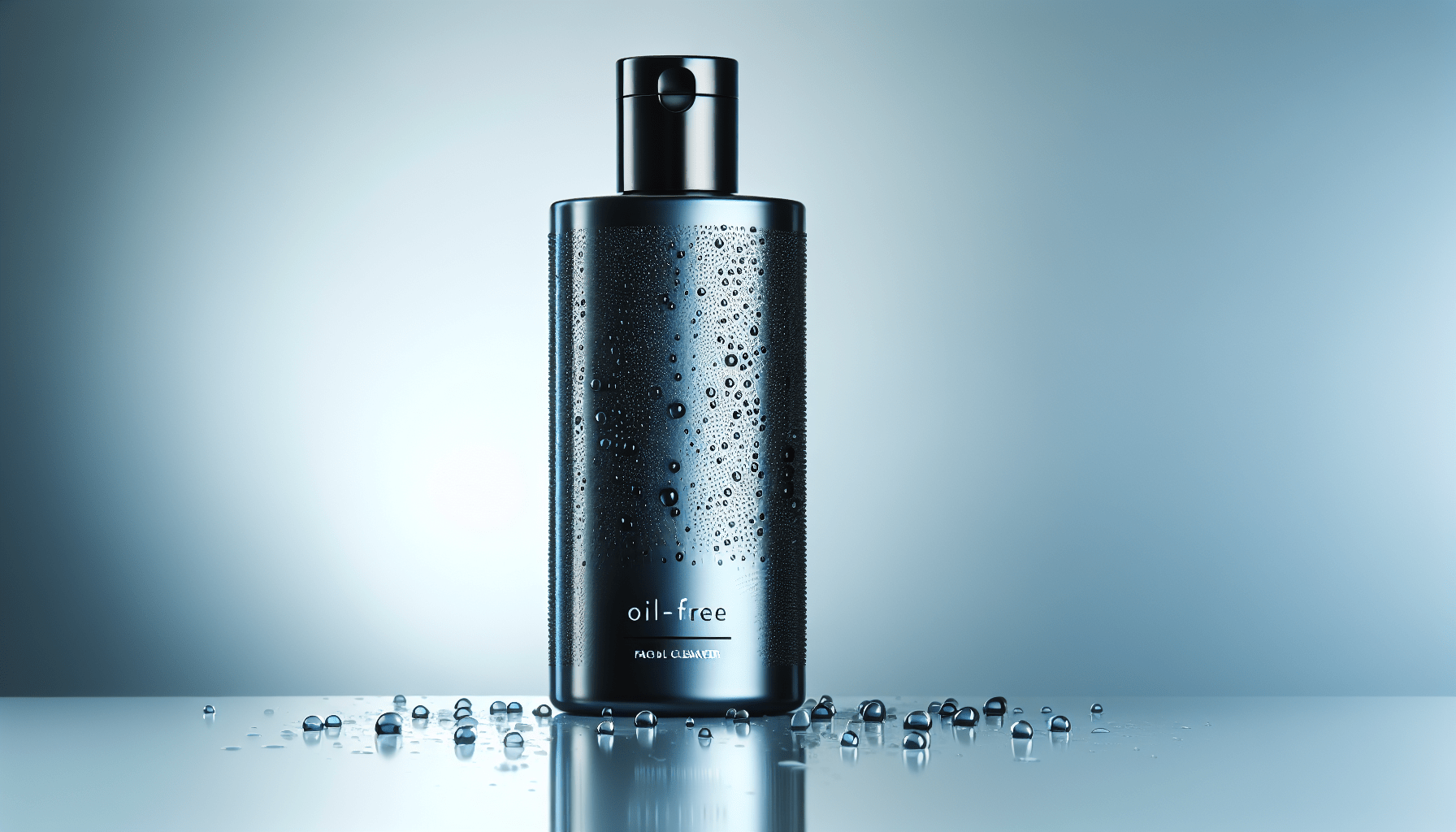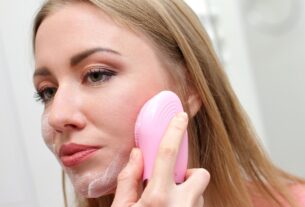Have you ever felt like your face turns into an oil slick by midday? Or maybe you’re just tired of that greasy sheen greeting you every morning in the mirror? If you have oily skin, you’re not alone, and you’ve come to the right place for advice.
Understanding Oily Skin
Oily skin is characterized by an overproduction of sebum, the skin’s natural oil. Sebum isn’t all evil; it actually helps to protect and hydrate your skin. But an excess of it, often caused by a variety of factors such as genetics, diet, stress, or hormonal changes, can lead to clogged pores, acne, and that uninvited shiny look.
Factors Contributing to Oily Skin
Identifying the root causes of your oily skin can help tailor a skincare regimen that works for you.
- Genetics: If oily skin runs in your family, chances are you’ll experience it too.
- Hormonal changes: Puberty, menstruation, pregnancy, or menopause can increase sebum production.
- Diet: Consuming a lot of greasy or sugary foods can exacerbate the problem.
- Stress: High-stress levels can trigger your adrenal glands to produce more oil.
- Environment: Humid climates often contribute to increased oil production.
Signs You Have Oily Skin
Before jumping into skincare tips, it’s essential to confirm you really have oily skin. Here are some signs:
- Large pores: Your skin tends to have larger, more visible pores.
- Shiny complexion: Your face looks shiny, particularly in the T-zone (forehead, nose, and chin).
- Frequent acne: You may experience breakouts, blackheads, and other blemishes more often.
- Makeup issues: Makeup seems to slide off or wear out quickly.
The Do’s and Don’ts for Oily Skin
Let’s decode some basic principles that can guide your skincare routine.
Do’s
- Regular Cleansing Use a gentle cleanser twice a day to remove the excess oil and impurities. Look for products that contain salicylic acid, benzoyl peroxide, or glycolic acid.
- Hydrate Properly Don’t think that hydrating your skin will make it oilier. A good, oil-free moisturizer can help balance your skin’s oil production.
- Use Non-Comedogenic Products Ensure that your skincare and makeup products are non-comedogenic, meaning they don’t block your pores.
- Exfoliate Regular exfoliation can remove dead skin cells that can clog your pores and lead to breakouts. Yet, over-exfoliating can strip your skin of necessary oils and cause more harm than good.
Don’ts
- Over-Cleanse Cleaning your face too often can strip it of its natural oils, which can trigger the glands to produce even more oil. Stick to cleansing twice daily.
- Skip Moisturizer Many people with oily skin think they can skip the moisturizer. However, skipping this step can lead to even more oil production.
- Use Harsh Products Avoid products that can irritate your skin and make the problem worse, such as strong astringents and alcohol-based products.
- Touch Your Face Frequently touching your face can transfer bacteria and oils from your hands to your face, leading to breakouts.
Building the Perfect Skincare Routine
A well-tailored skincare routine can make a significant difference in managing oily skin. Here’s a step-by-step guide.
Morning Routine
1. Cleansing
Start your day with a gentle, oil-free cleanser. This helps remove excess oil and prepares your skin for the day.
2. Toner
Use an alcohol-free toner. Toners help to remove any additional residue and can help control oil production.
3. Serum
Consider a serum that contains niacinamide or retinol. These ingredients are excellent for reducing oil production and helping to refine pores.
4. Moisturizer
Never skip this step. Opt for a light, oil-free moisturizer. Look for products that are non-comedogenic and contain hydrating ingredients like hyaluronic acid.
5. Sunscreen
Finish your morning routine with a broad-spectrum SPF 30 or higher. Sunscreen protects your skin from harmful UV rays and prevents premature aging.
Evening Routine
1. Double Cleansing
If you wear makeup or heavy sunscreen, start with an oil-based cleanser followed by your regular one. This ensures all the grime and makeup are thoroughly removed.
2. Exfoliation
Don’t exfoliate every night—2 to 3 times a week is enough. Use a chemical exfoliant containing AHA or BHA.
3. Toner and Serum
Repeat your morning toner and serum application.
4. Night Cream or Gel
Your night moisturizer should be heavier than your day one but still oil-free. Ingredients like retinol or peptides can help in the repair process.
Weekly Add-ons
Incorporate masks and treatments into your weekly regimen for additional benefits. Clay masks can help absorb excess oil, and treatments with sulfur can target breakouts.
The Ultimate Product Recommendations for Oily Skin
Choosing the right products can be overwhelming, given the plethora of choices. Here’s a simplified list to guide you:
| Product Type | Recommendations |
|---|---|
| Cleanser | Cetaphil Dermacontrol Oil Removing Foam Wash |
| Toner | Thayers Alcohol-Free Rose Petal Witch Hazel Toner |
| Serum | The Ordinary Niacinamide 10% + Zinc 1% |
| Moisturizer | Neutrogena Hydro Boost Water Gel |
| Sunscreen | La Roche-Posay Anthelios Clear Skin Dry Touch Sunscreen SPF 60 |
| Exfoliant | Paula’s Choice Skin Perfecting 2% BHA Liquid Exfoliant |
| Clay Mask | Aztec Secret Indian Healing Clay |
The Role of Diet and Lifestyle
Your skin is a reflection of what you put into your body. A balanced diet rich in certain nutrients can help manage oily skin.
Foods to Eat
- Omega-3 fatty acids: Found in fish, chia seeds, and walnuts, they help reduce inflammation.
- Antioxidants: Consume berries, dark chocolate, and leafy greens to combat oxidative stress.
- Hydration: Drink plenty of water to maintain skin’s elasticity and overall health.
Foods to Avoid
- Sugary foods: They can spike insulin levels, which can increase sebum production.
- Greasy foods: They don’t directly cause oily skin, but overconsumption can lead to poor overall skin health.
Lifestyle Habits
- Exercise: Regular physical activity helps manage stress and increases blood circulation.
- Sleep: Aim for 7-9 hours of quality sleep to help your skin repair itself.
- Stress Management: Incorporate yoga, meditation, or other stress-relieving activities into your routine.
Common Myths About Oily Skin
Don’t fall prey to the myriad myths surrounding oily skin. Here’s a handful debunked:
Myth 1: Skipping Moisturizer Reduces Oiliness
Fact: Skipping moisturizer can actually lead to increased oil production as your skin tries to compensate for the dryness.
Myth 2: Oily Skin Doesn’t Need Sunscreen
Fact: Everyone, regardless of skin type, needs sunscreen. Opt for an oil-free, matte finish formula.
Myth 3: You Should Wash Your Face Multiple Times Daily
Fact: Over-cleansing can strip your skin’s natural oils and lead to even more oil production.
Myth 4: Oily Skin Ages Better than Dry Skin
Fact: While oily skin might be more resilient to wrinkles, it’s not immune to aging or other skin issues like enlarged pores and blemishes.
Myth 5: Makeup Causes Oily Skin
Fact: Non-comedogenic and oil-free makeup products can be used safely without aggravating oil production.
Consult a Dermatologist
If you’ve tried various routines and products to no avail, consulting a dermatologist might be your best bet. They can offer personalized advice and treatments such as prescription medications, specialized skincare routines, or in-office treatments like chemical peels or laser therapies.
Seasonal Adjustments
Your skincare needs can change with the seasons.
Summer
- Use lightweight products: Switch to lighter formulas to deal with the humidity.
- Blotting papers: Keep some handy to manage mid-day shine.
Winter
- Hydrate more: Even oily skin can get dehydrated in winter. Use a richer, non-comedogenic moisturizer.
- Humidifier: Consider using a humidifier to maintain moisture levels in the air.
Conclusion
Oily skin can be a challenge, but with the right routine and products, you can manage it effectively. Cleansing, hydrating, and protecting your skin should form the cornerstone of your daily regimen. Complement your skincare with a balanced diet and healthy lifestyle to see a noticeable difference. Don’t forget, the journey to healthier skin is personal and continuous, so be patient and persistent in your efforts.
Navigating the world of oily skin care can be tricky, but armed with knowledge and the right tools, you’re well on your way to achieving a balanced, radiant complexion. Cheers to your glowing, well-cared-for skin!



